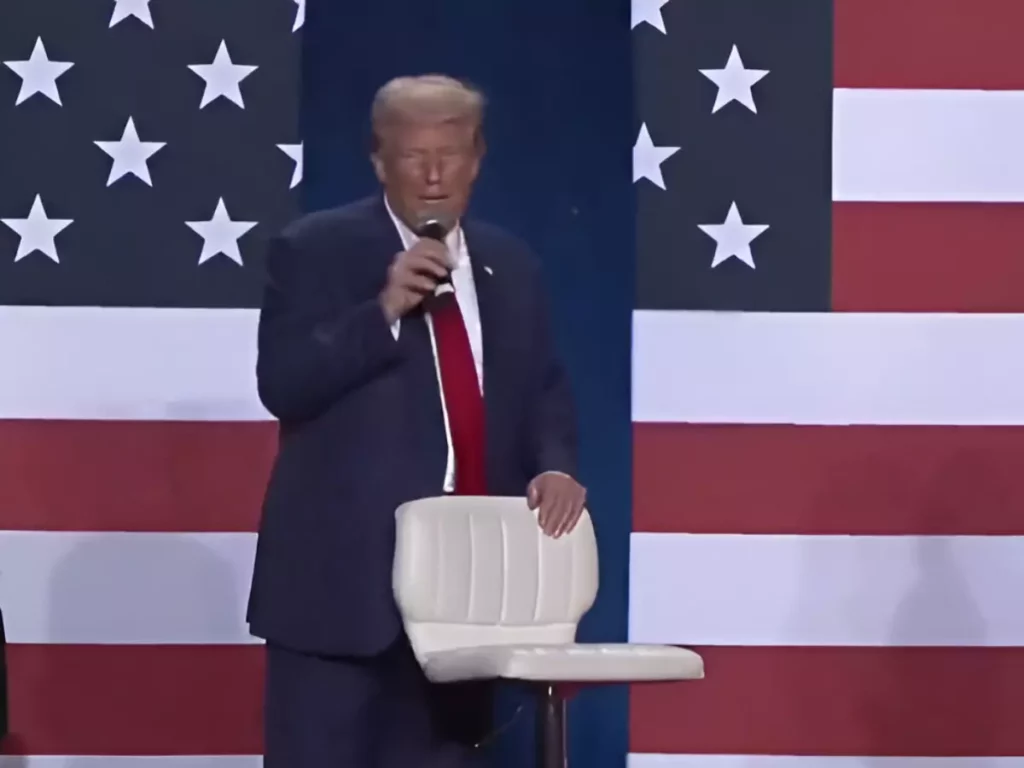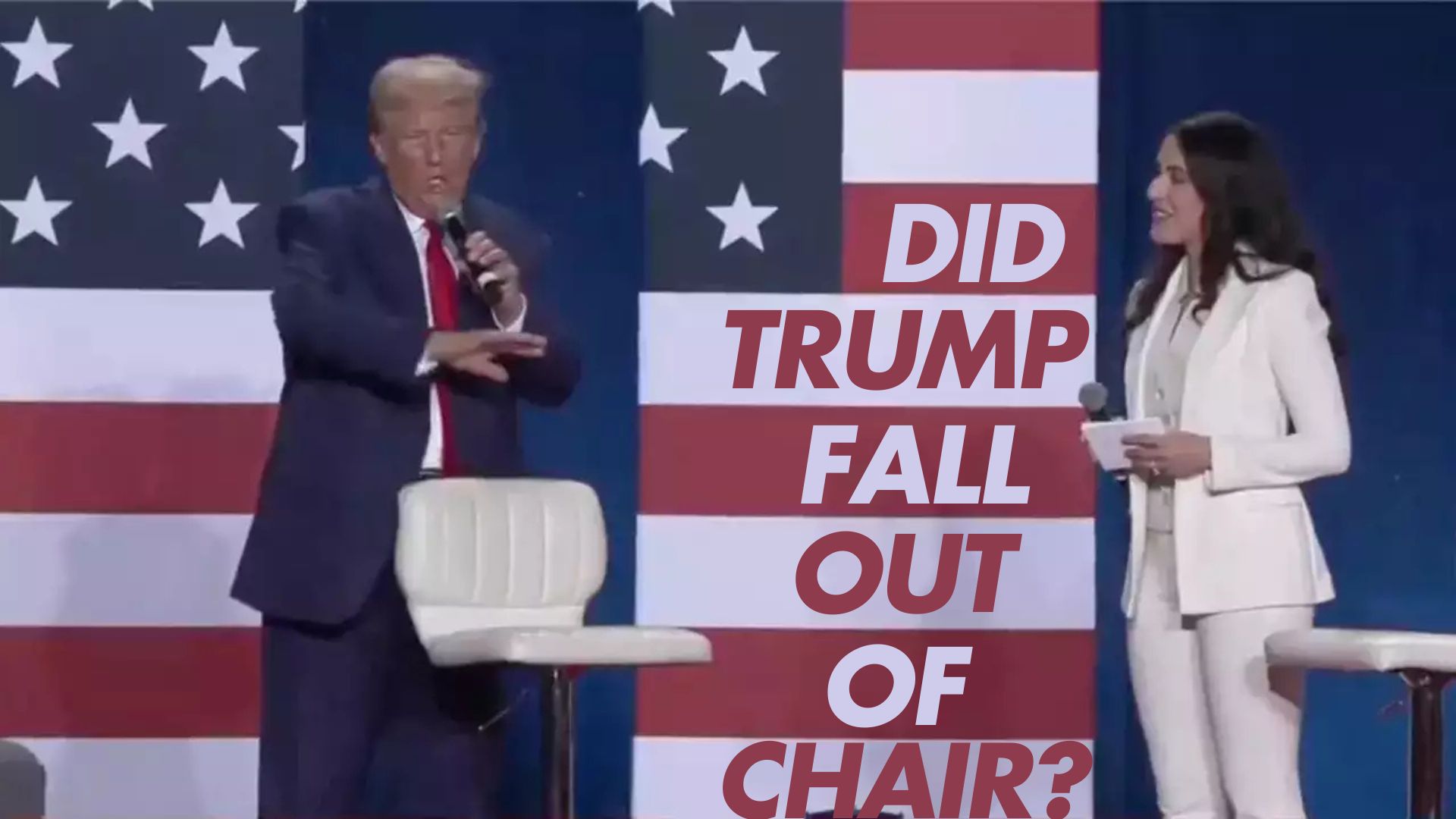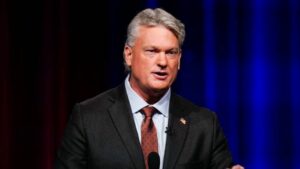In the chaos of political discussions, especially during intense election campaigns, even a simple joke can quickly snowball into something much bigger. I remember a few months ago, at a town hall in North Carolina, when President Donald Trump made a lighthearted comment:
“I think I’m going to stand. This chair is the most uncomfortable chair. I’ve had it. First of all, it spins, and the one thing I don’t want is to fall on my a**, because that’s gonna be—that will be—the only story. So I’m not sitting in that sucker. I think it’s a booby trap that was put there by Kamala [Harris],”
As expected, what happened next was a flurry of online searches and speculation, with many questioning whether Trump had, in fact, fallen out of a chair. Spoiler alert: he hadn’t.
The Birth of a Non-Event
This moment perfectly illustrates how everything gets intensely politicized during election cycles. What started as a harmless joke quickly spiraled into a mini media frenzy. When it comes to political statements, it has been noted time and again that even the most innocent comments can take on a life of their own, specially in the midst of campaigns. It is a common occurrence for statements to be manipulated to serve specific narratives, stir distrust, or simply generate attention.
So essentially, the phenomenon isn’t new. Trump’s presidency has been marked by a blend of theatricality and media obsession. But it also underscores the heightened scrutiny that accompanies political leaders during election season. Every comment, every movement, every decision becomes fodder for both opponents and supporters.
Politics, Perception, and Ruthlessness
Now, with Trump securing victory in the 2024 presidential election—a stunning performance that captured both blue and red states—this anecdote feels like a blip in the broader narrative of his campaign. However, it remains emblematic of the cutthroat nature of politics today.

Trump’s win came after a campaign defined by tension, unpredictability, and razor-thin margins. His opponents, including Vice President Kamala Harris, faced similar challenges as public perceptions shifted rapidly in a polarized electorate.
In the final months leading up to the election, both parties dealt with the fallout of relentless media scrutiny and internal discord. From strategic shake-ups to last-minute barbs, the campaigns embodied the “anything-goes” nature of modern electoral politics.
The Chair Incident as a Reflection
The chair anecdote serves as a reminder of how political commentary often devolves into triviality. A single humorous comment became an imagined “fall,” a supposed embarrassment blown out of proportion. Yet, it also reflects the relentlessness of political narratives, where nothing is too small to be dissected.
Trump’s ability to turn moments like this into viral talking points has been both a strength and a vulnerability. His campaign’s closing weeks showcased his well-documented restlessness, which clashed with advisers’ more restrained strategies. Yet, his instincts—whether in the form of audacious rhetoric or impromptu humor—clearly resonated with a significant portion of the electorate.
A Lesson in the Spectacle
If one thing is clear, it’s that political campaigns, especially in the digital age, thrive on the absurd. What should have been a fleeting moment instead became another illustration of how perceptions are crafted and manipulated.
The 2024 election season may be over, but the chair “incident” and its aftermath are likely to remain a curious footnote in the annals of a campaign marked by its unpredictability. For better or worse, it underscores the lengths to which our political discourse can stretch in the quest to captivate, persuade, or provoke.



